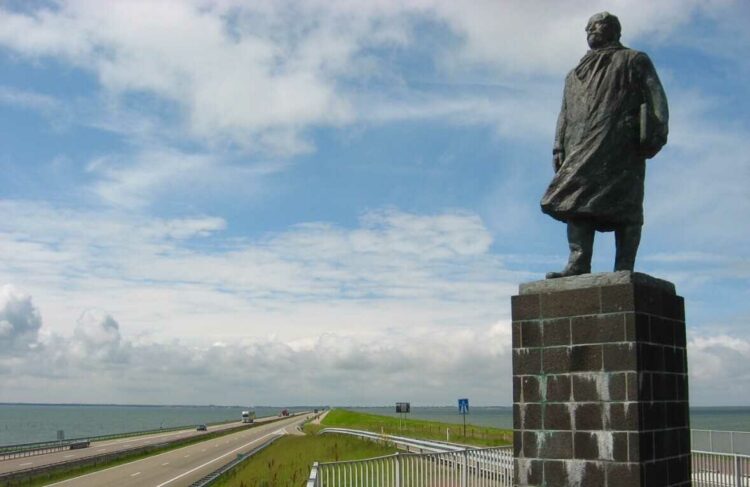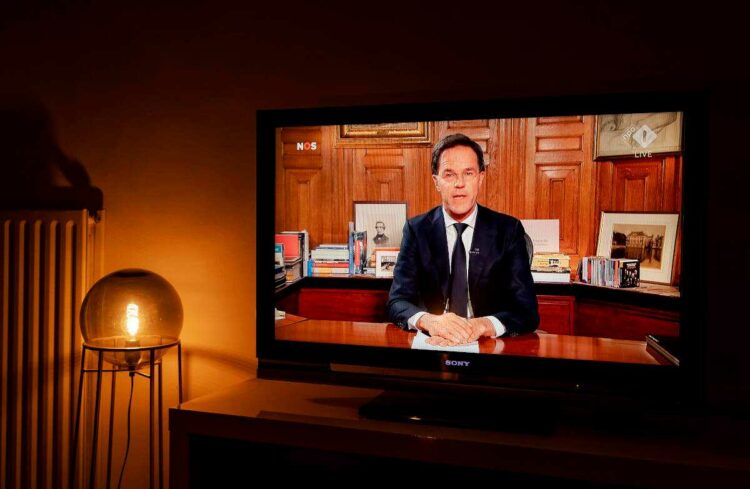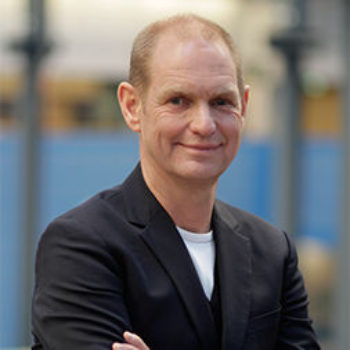COLUMN: There is hope for the major societal challenges!
‘Plans for Corona app a shambles’ ran the headline in the Algemeen Dagblad, a Dutch newspaper, after the now infamous ‘Appathon’ event organized in mid-April by the Ministry of Health, Welfare and Sport to test and improve apps designed combat the spread of corona.
In other media, too, there was nothing but harsh criticism of this experimental attempt to come up with a lockdown exit strategy. The unanimous verdict was that it was a total failure. But why exactly? Viewed from the perspective of innovation, the way in which the government tackled this complex issue was a sign of a real change, a sign of hope for all major challenges faced by society today.

Many of these challenges, among them the energy transition and digitalization of government services, are taking place at a system level, involving multiple stakeholders and conflicting interests, and according to public-private business models that have yet to crystallize. In other words, they constitute Gordian knots whose unravelling still requires painful choices to be made. Coming up with innovative solutions to ‘wicked problems’ of this kind calls for an open, exploratory approach that allows for experiments, questions and mistakes. It is a vulnerable process, yet of considerable public interest. Every change therefore calls for a form of urgency, leadership and ownership, whether it concerns incremental improvements or radical solutions. One individual or body should always take the reins to ensure that the interests of all parties are aligned and to keep an eye on the big picture. After all, a film without a director is doomed to fail. If nobody takes control, as was the case with the recent Dutch nitrogen crisis — when a court ruling forced the Dutch government to curb construction work and farming operations in an attempt to limit nitrogen emissions —, you end up with a result that nobody wants, one that often has major financial and unpleasant social consequences.
But history has shown that it is possible for governments around the world to play a leading role in transitions by making mature and measured choices. Many IT projects in America, just like in the Netherlands, have failed miserably, wasting hundreds of millions of dollars. In 2015 Obama had had enough, so he set up the United States Digital Service Institute and decided to take matters into his own hands instead of outsourcing the work. He appointed Megan Smith (previously of Apple and Google) as Chief Technology Officer and succeeded in bringing people from MIT and Facebook to the White House to contribute their design expertise. For that moment on, ‘wicked problems’ such as the difficulty in correctly processing immigration forms, were tackled with creativity and knowledge by a network of experts.
Here at home in the Netherlands, we also know that creativity, vision and politics do not necessarily have to conflict with one another. Indeed, they can sometimes be united in one individual: Cornelis Lely was both an engineer and a designer, and as a politician he succeeded in realizing his plan to build the enormous Afsluitdijk dam in the 1920s, a dam that made it possible to create large parts of new land.

The statue of Cornelis Lely on the Afsluitdijk
Prime Minister Rutte’s speech on 16 March, in which he explained the far-reaching measures taken to combat corona, is already viewed as historic. He revealed himself to be an empathetic, open and honest leader – not only basing his case on science but also admitting that there was plenty of uncertainty among government officials and policy-makers. ‘We really have to do this together’ and ‘The Netherlands is fundamentally a deeply socialist country’ – statements he made in parliament – have already become famous.

Prime Minister Rutte’s speech on 16 March about the far-reaching measures taken to combat corona.
Up until that point, policy was largely aimed at minimizing government interference and leaving things to ‘the market’, and they certainly did not involve embracing long-term visions.
‘A vision is like an elephant that blocks your view. If vision means a blueprint for the future, then everything that is liberal in me opposes it,’ Rutte had commented in September 2013 in the Volkskrant newspaper.
The belief that societal change should only come about in a bottom-up manner, without any supervisory role played by the government, had been firmly rooted in Dutch policy and stems from an almost unshakeable neo-liberal view of humanity: that of Homo economicus. Homo economicus acts in his own interests, and where there is demand he creates supply. The role of the government is to ensure that no fraud takes place, that supply and demand come together, and that nothing or nobody disrupts the market. There is but one goal: economic prosperity.
That succeeds when it comes to consumption, the individual and the short term. But it fails when it concerns the long-term interests of the collective. And that is the case with the corona crisis. For humankind simply does not act rationally. We are notoriously bad at making choices that are good for us in the long term. Those choices must therefore be made in a considered manner, mindful of all the various stakeholders and interests.
Blessings
The fact that it was impossible for the cabinet to walk away in mid-March from the Gordian knot presented by corona might therefore be a blessing for future societal challenges. For the government and the cabinet have taken on the role of quartermaster in charge of corona interventions and are undergoing an extremely steep learning curve in public. They were forced to display leadership and ownership in an uncertain process and to make painful choices. Moreover, they listened to ordinary citizens, to experts, and to the market.
There is still a long way to go, but the learning moments and the change in underlying attitude offer hope. Even after the corona crisis, we in the Netherlands will face a number of major societal challenges — the energy transition, sustainability in agriculture, our health care system, the modernization of education and public services, to name just a few. How can we as a society facilitate these transitions as smoothly as possible? And what would be the ideal role of the government in that process?
Politicians would be very wise to step forward and take on the role of quartermaster more emphatically, and by that to take responsibility for formulating long-term visions. This is only possible by embracing an integral approach that stresses both the societal and economic importance.
The government, as an incubator for major collective challenges, should only loosen the reins once the transition process has been established and agreed upon, which is precisely what it is now doing in tackling the corona crisis. This means providing a basis for exploring, testing, failing and learning. It also means involving the market and experts, and it gives a key new role to the creative industries and scientific community. The role of the creative industries is to pose questions and devise solutions that transcend the individual interests of stakeholders, while it is the task of the scientific community to establish a knowledge base that acts as a breeding ground.
Shaping the desired change calls for the right insights and long-term policies, ensuring that knowledge and experience increase to such a level that the transition can ultimately be supervised and implemented. So now we can dare to once more state how vitally important it is for the government and society to formulate a vision for tackling the major themes of our time.
This article can also be found on the Dutch Creative Council website
Jeroen van Erp
Chairman of the Dutch Creative Council, professor at the Faculty of Industrial Design at Delft University of Technology and co-founder of strategic design agency Fabrique
@jeroenvanerp, @idetudelft
Anna Noyons
Social designer, founder of (ink)., design studio focused on social impact
@annanoyons, @ink_stagram_
